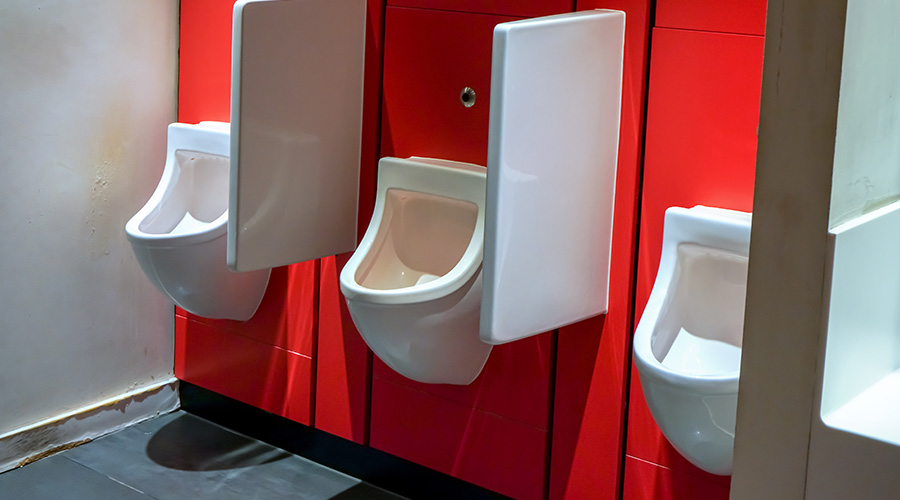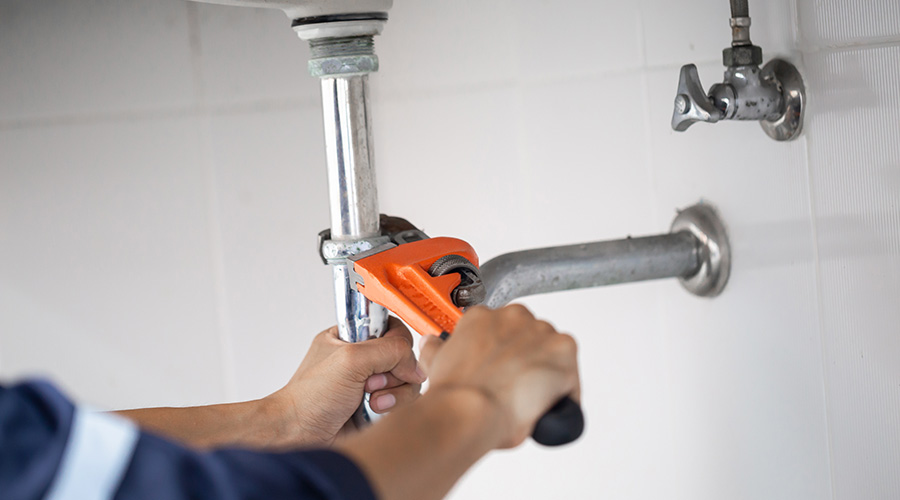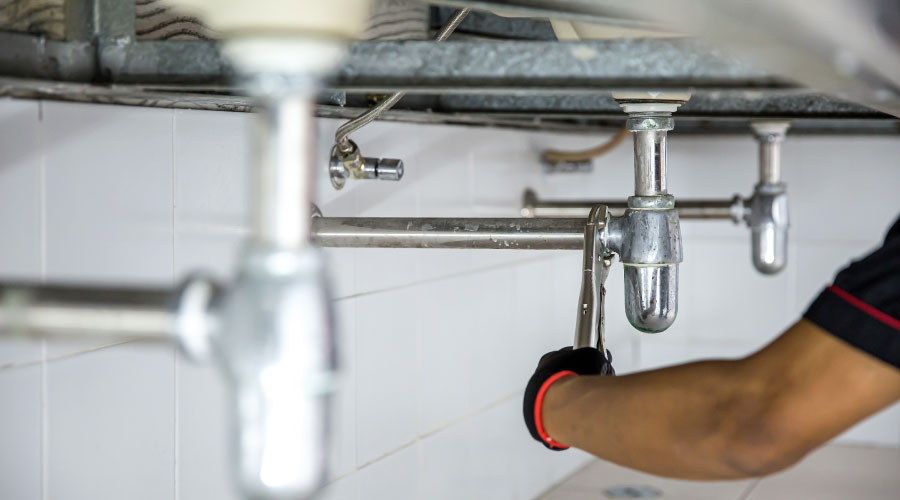Technician Training Considerations for Drain Cleaning Projects
Regardless of facility age or pipe materials, managers need to ensure that front-line technicians receive training on the proper use of drain-cleaning units to ensure both worker productivity and safe operation.
"The No. 1 thing is safety," Dunbar says. "First and foremost, you don't want someone to hurt themselves, and with high-pressure water that is coming out of a jetter, that penetrates the skin, and that's not a good thing.
"A snake — if you push it too hard down a drain, depending on the type of unit it is and how you have to configure it, or if you throw a loop or a kink in front of you — it can grab you and hurt you. The biggest thing to know is, don't force a cable down a pipe. Get a feel for it, but don't force it."
If a facility has multiple pieces of drain-cleaning equipment, it is essential that technicians be trained on every piece of equipment.
"Depending on what machines they have in their arsenal, they should be trained on each one of them, especially if they are using a mix between drum and sectional machines," Schaeper says. "Another thing they need to be trained on, if it is an older building, the building will see the same type of obstructions over time. If they do have problems with the drainage system, if they have roots, or (if) they are draining stuff into the piping systems that gets clogged up, they must know how to tackle those types of obstructions.
"They need to know what kinds of cutter heads to use, what the best cable size is to use, and what machine is appropriate for the pipes in the building."
It is vital to stress the importance of wearing personal protective equipment — the proper eyewear, gloves and other clothing — to technicians while on drain-cleaning duty.
"Understanding the attributes of any hazardous chemicals used and how they interact during use under various circumstances and how to control the process is critical," McLaughlin says. "It is important that appropriate, professional training and systematic retraining take place to prevent harm to themselves an others. It is critically important that professionally trained staff be thoroughly knowledgeable with the products they are using."
Related Topics:













